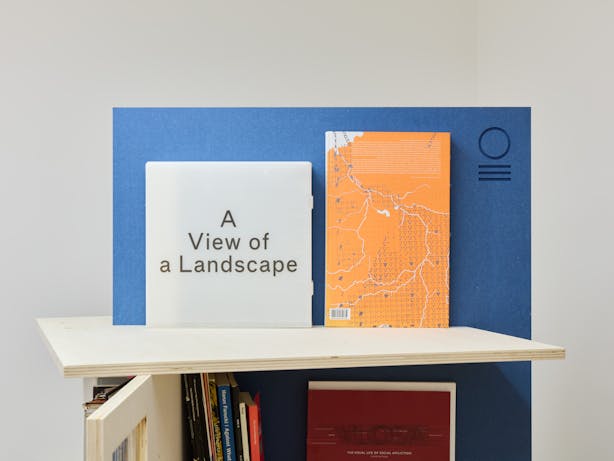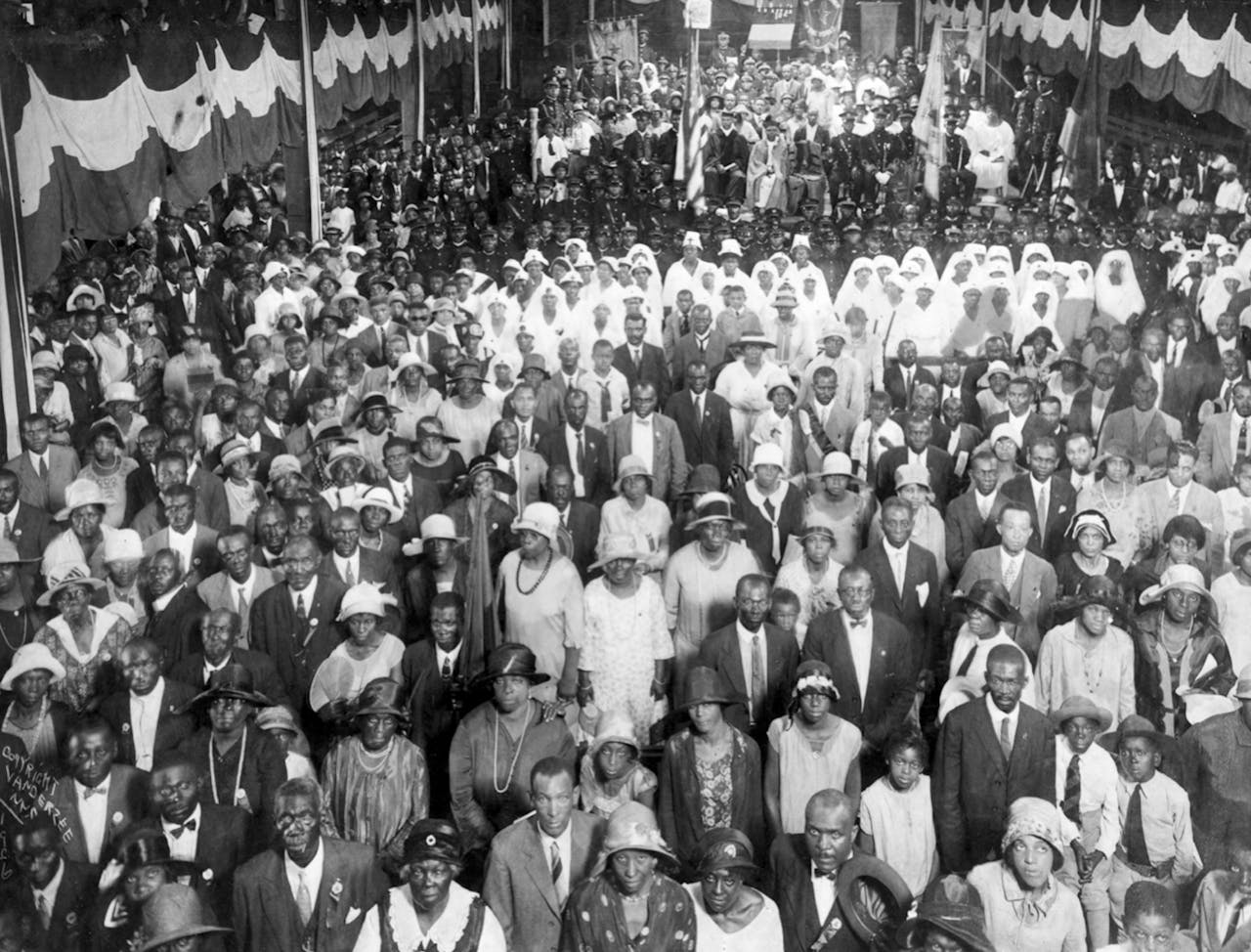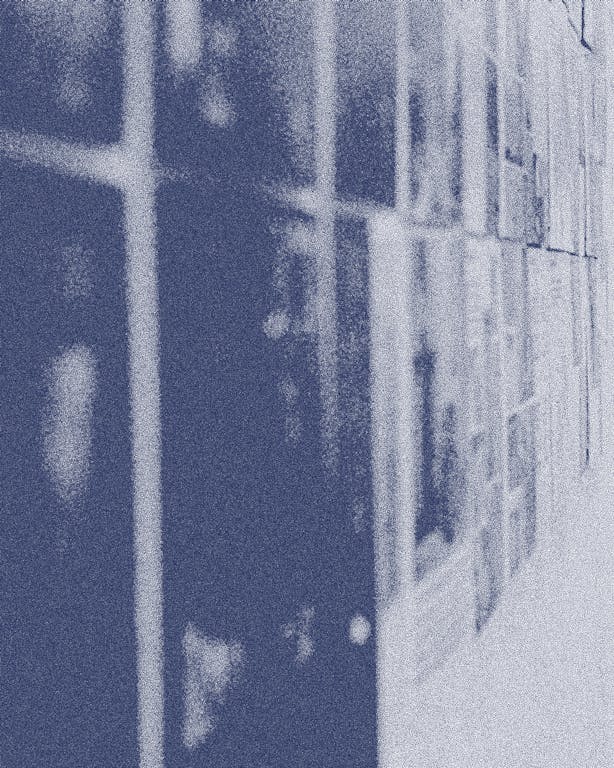
- Library-in-Residence
A Flock of Keen-eyed and Far-Seeing Magpies
The Otolith Library-in-Residence
Adom Getachew

James Van Der Zee, UNIA International Convention (1926)
Sunday 2 Nov 2025, 3–4:45pm
For the first Library Transmission at the Otolith Library-in-Residency at Ibraaz, Adom Getachew will present a lecture titled ‘The Garveyite Art of Eloquence’ from her forthcoming book on the intellectual origins and political practices of the Universal Negro Improvement Association founded by Marcus Garvey and Amy Ashwood in Kingston, Jamaica in 1914. Her presentation will be followed by a conversation with Anjalika Sagar and Kodwo Eshun of The Otolith Collective.
Through her books, essays, articles, reviews, and curatorial collaborations, Getachew has excavated what she calls projects of ‘anticolonial worldmaking’ that contribute to the history of the present by rethinking decolonisation. In casting anticolonial nationalists as ‘worldmakers’ rather than solely nation builders, Getachew analyses the historical practices of transnational networks that experimented with political forms beyond and below the nation-state. To imagine an egalitarian world order, then, as now, entails a critical diagnosis of the persistence of empire. These tasks of imagination and diagnosis, argues Getachew, remain ours as much as theirs.
The Garveyite Art of Eloquence
From its founding in 1914 to its height in the 1920s, the Universal Negro Improvement Association made elocution, public debate, and recitation a central practice of the organisation, signalling Garveyism’s deep commitment to oratory as a site of political education. As one Garveyite, Claudius Barnes, put it: ‘They say that the pen is mightier than the sword, but the tongue is mightier than them put together.’ This talk charts the origins of this emphasis on oratory and demonstrates the ways in which oratory and eloquence were democratised by Garveyites through an emphasis on repetition and reiteration. The practices of elocution and oratory provide a vantage point onto Garveyism’s conception of improvement as empowerment. The language of improvement harkened back to Victorian ideals of moral improvement and to conceptions of racial uplift. While these meanings continued to be resonant during the highpoint of Garveyism in the 1920s, improvement accrued new signification as a reiterative political education organised to engender self-emancipation.

The Otolith Library-in-Residence

Evan Ifekoya, Anjalika Sagar & Kodwo Eshun (The Otolith Group), Tai Shani

Bilal Akkouche, Taous Dahmani, Êvar Huseynî, Didem Pekün, and Adam Rouhana